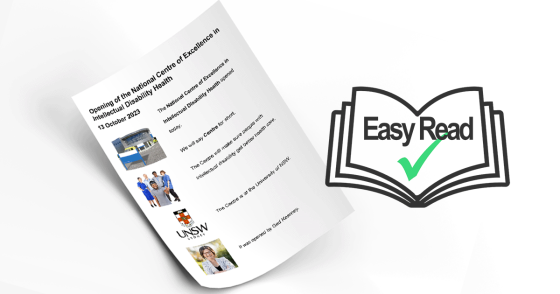What will the Centre do?
The core functions of the National Centre will include
- providing leadership in intellectual disability health
- driving innovation and collaboration
- lifting the capability of health services to meet the needs of people with intellectual disability through training and development of best practice models of care.
The Centre will also support access to clinical expertise and provides online support for people with intellectual disability and their families, helping to connect them to appropriate health services.
The focus will be on people with intellectual disability and intersectional needs including First Nations people with intellectual disability, those living in rural and remote locations, and people experiencing homelessness or facing mental health and drug and alcohol issues.
Will people with intellectual disability be involved?
Yes. The Centre is built on an innovative and comprehensive model that includes shared governance with people with intellectual disability, their families, and advocates.
Why was the Centre created?
The establishment of the Centre is a response to the significant health disadvantage experienced by people with intellectual disability.
The Centre will support the delivery of the Australian government’s National Roadmap for Improving the Health of People with Intellectual Disability. The Australian Government has provided the Centre $22 million over four years from 2022-23.
Who is running the Centre?
The Centre is led by a consortium that includes the UNSW Department of Developmental Disability Neuropsychiatry (3DN), the Council for Intellectual Disability, Down Syndrome Australia, Queenslanders with Disability Network, First Peoples Disability Network Australia, University of Melbourne, The Kids Research Institute Australia, Mater Intellectual Disability and Autism Service, and the Centre for Disability Studies.
The Centre's work will be supported by a broader network of 20 partner and 36 collaborator organisations, including state health departments, universities, primary health networks, peak and regulatory bodies, First Nations community-controlled organisations and local health districts.
